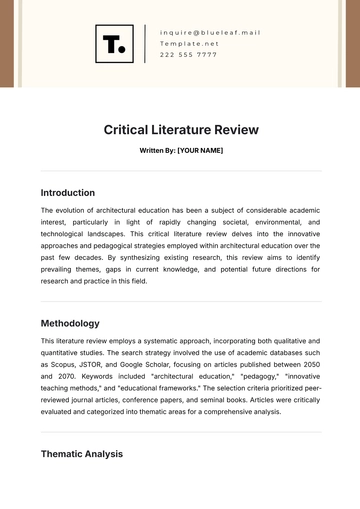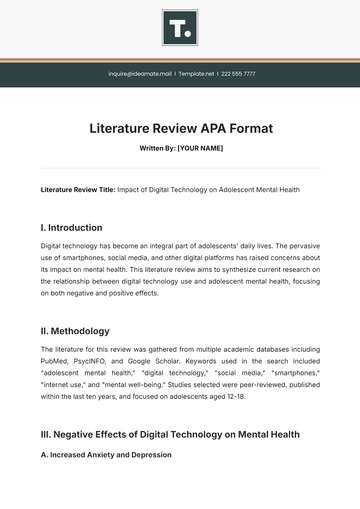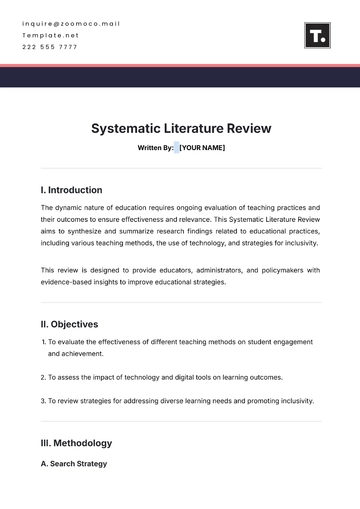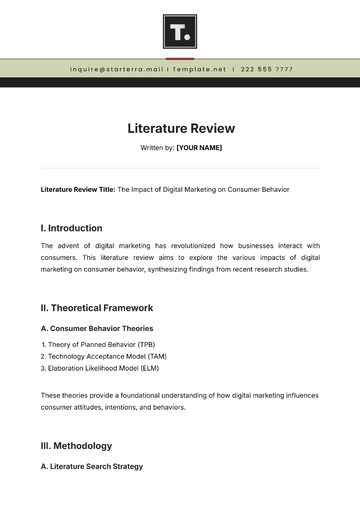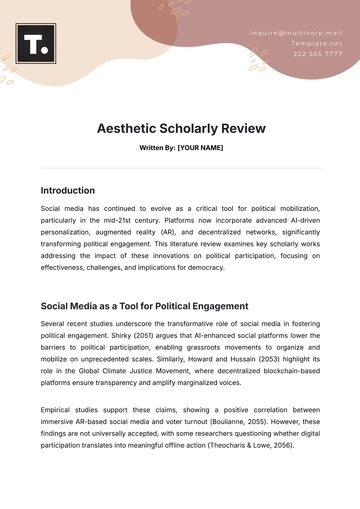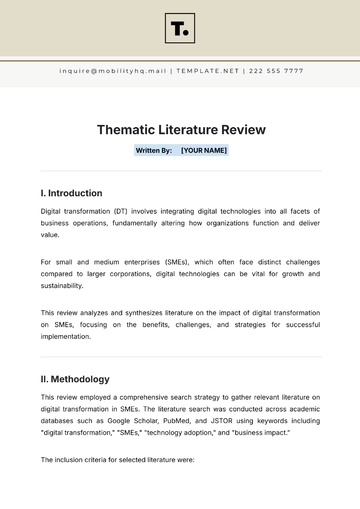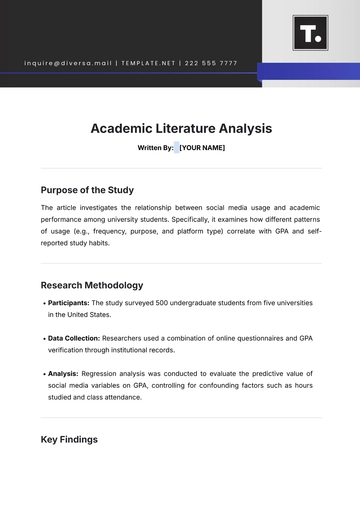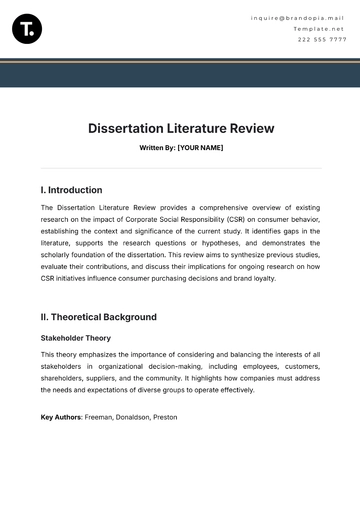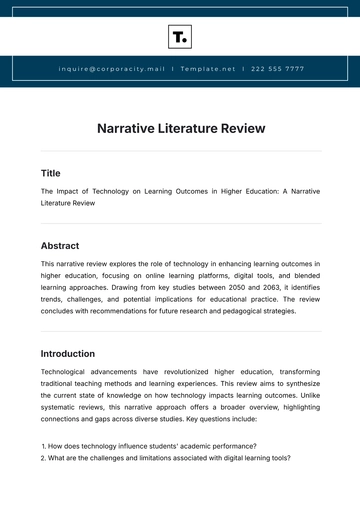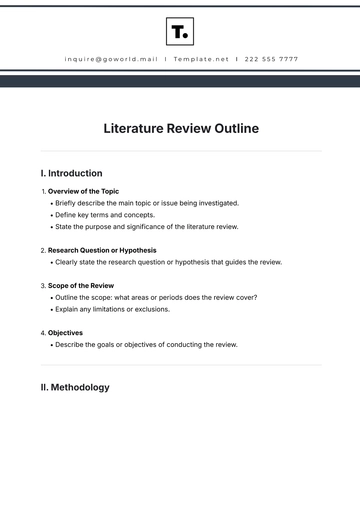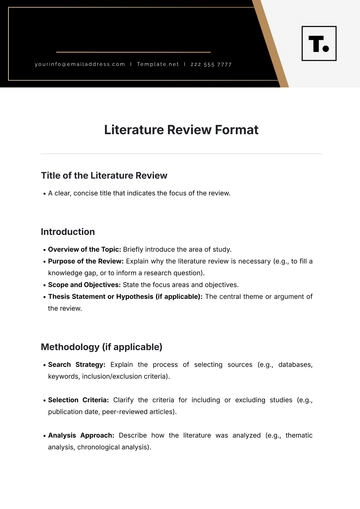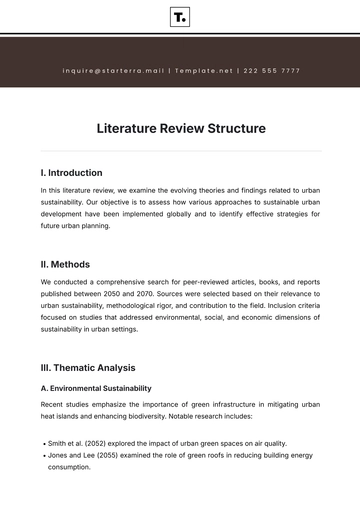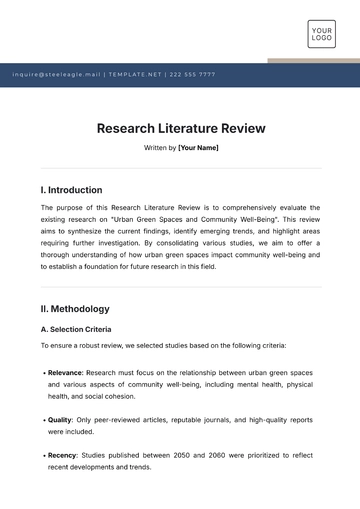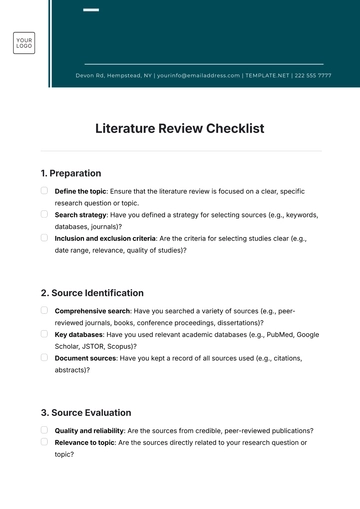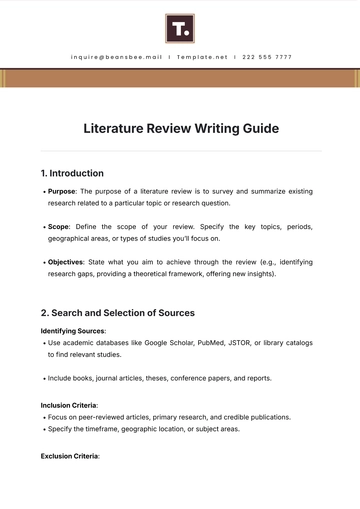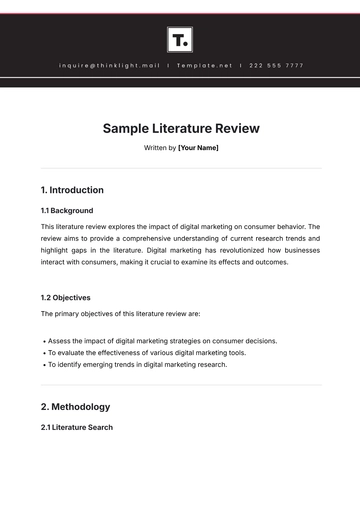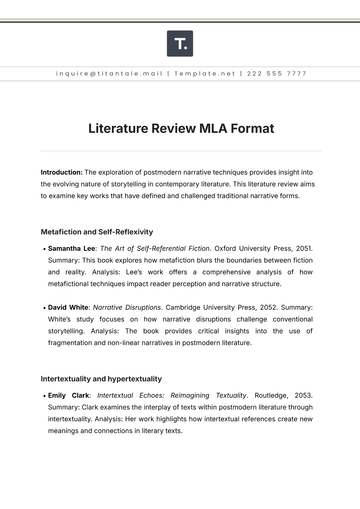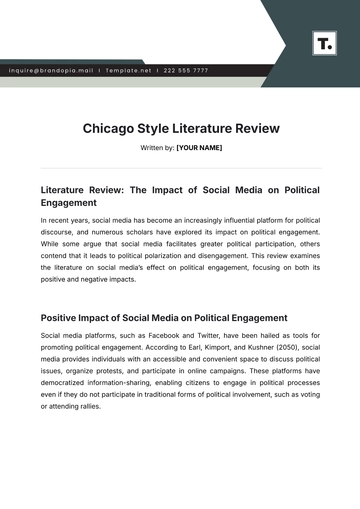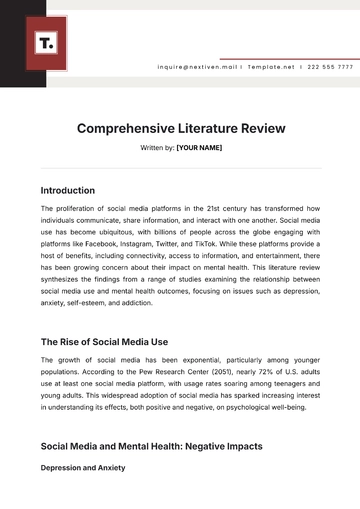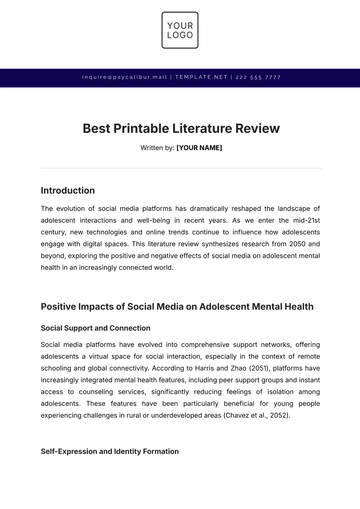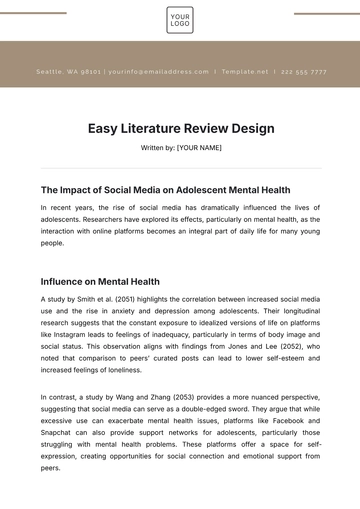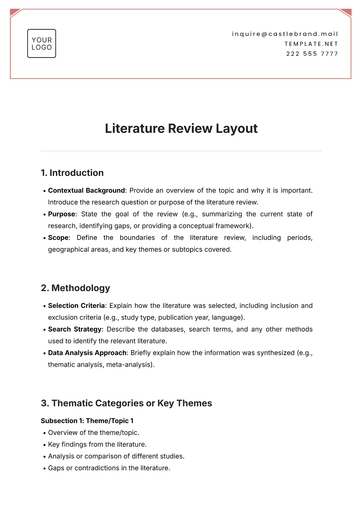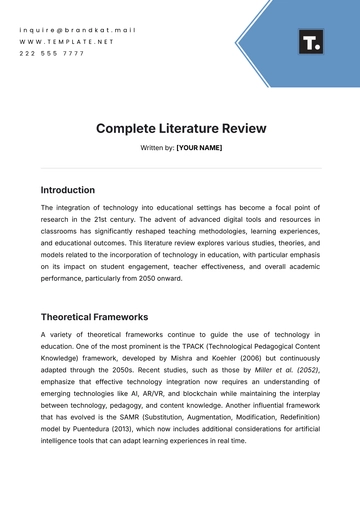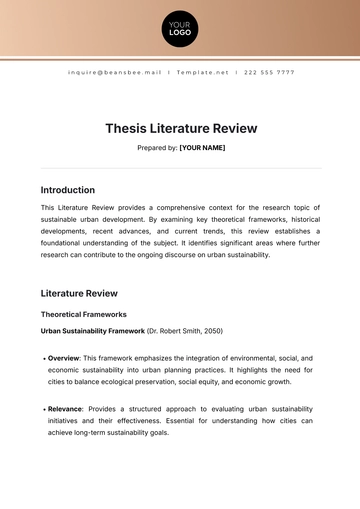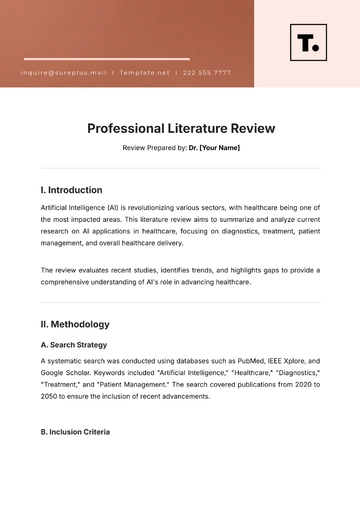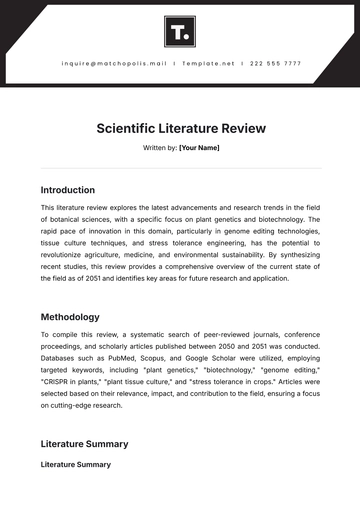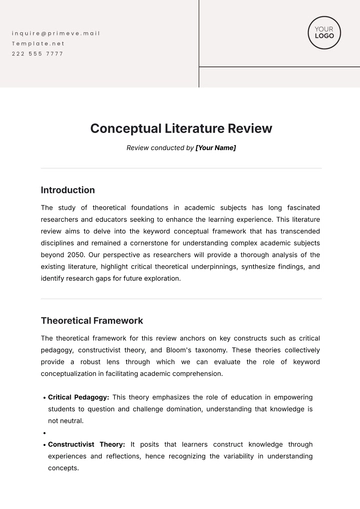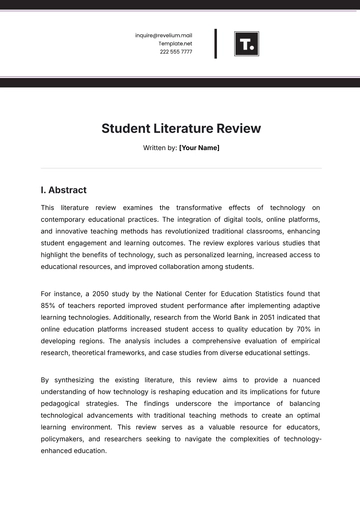Free Student Literature Review
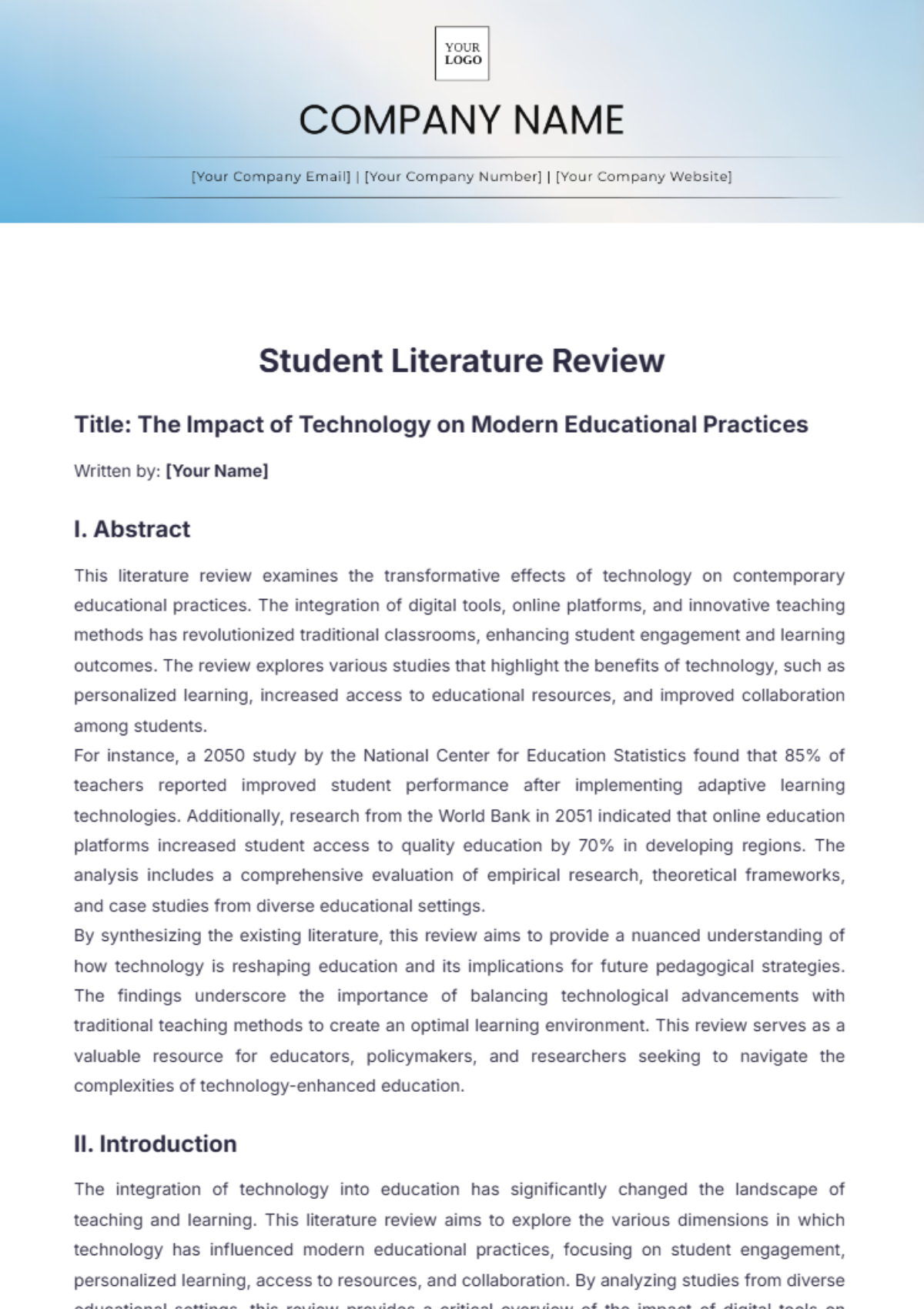
Written by: [Your Name]
I. Abstract
This literature review examines the transformative effects of technology on contemporary educational practices. The integration of digital tools, online platforms, and innovative teaching methods has revolutionized traditional classrooms, enhancing student engagement and learning outcomes. The review explores various studies that highlight the benefits of technology, such as personalized learning, increased access to educational resources, and improved collaboration among students.
For instance, a 2050 study by the National Center for Education Statistics found that 85% of teachers reported improved student performance after implementing adaptive learning technologies. Additionally, research from the World Bank in 2051 indicated that online education platforms increased student access to quality education by 70% in developing regions. The analysis includes a comprehensive evaluation of empirical research, theoretical frameworks, and case studies from diverse educational settings.
By synthesizing the existing literature, this review aims to provide a nuanced understanding of how technology is reshaping education and its implications for future pedagogical strategies. The findings underscore the importance of balancing technological advancements with traditional teaching methods to create an optimal learning environment. This review serves as a valuable resource for educators, policymakers, and researchers seeking to navigate the complexities of technology-enhanced education.
II. Introduction
The integration of technology into education has significantly changed the landscape of teaching and learning. This literature review aims to explore the various dimensions in which technology has influenced modern educational practices, focusing on student engagement, personalized learning, access to resources, and collaboration. By analyzing studies from diverse educational settings, this review provides a critical overview of the impact of digital tools on education and identifies areas for future research and practice.
III. Benefits of Technology in Education
Several studies have documented the numerous advantages associated with the use of technology in education. Key benefits include:
Personalized Learning: Technology enables personalized learning experiences by allowing educators to tailor lessons and activities to meet the unique needs of individual students.
Increased Access to Educational Resources: Digital platforms provide students with access to a wide array of resources, including online textbooks, interactive modules, and educational videos.
Improved Collaboration: Online tools facilitate greater collaboration among students through real-time communication, shared workspaces, and project management applications.
Enhanced Student Engagement: Interactive technologies, such as gamification and virtual reality, engage students by making learning more dynamic and interactive.
IV. Empirical Evidence
A range of empirical studies support the positive impact of technology on educational outcomes:
A 2050 study by the National Center for Education Statistics reported that 85% of teachers observed improved student performance after integrating adaptive learning technologies in their classrooms.
Research from the World Bank in 2051 indicated that online education platforms enhanced student access to quality education by 70% in developing regions.
Numerous case studies demonstrate success in various educational settings, where technology has facilitated more effective teaching strategies and improved overall student achievement.
V. Theoretical Frameworks
Theoretical perspectives provide essential insights into understanding the impact of technology on education. Notable frameworks include:
Constructivist Learning Theory: Emphasizes the importance of active, student-centered learning experiences that technology can readily support.
Socio-cultural Theory: Highlights the role of collaborative and social interaction in learning, facilitated by online communication tools and digital platforms.
Connectivism: Focuses on the role of technology in creating networks of information and knowledge sharing, which are critical in the modern educational environment.
VI. Case Studies
This review includes an examination of several case studies that highlight successful implementations of technology in various educational contexts. These case studies illustrate best practices and provide valuable lessons for educators and policymakers.
VII. Balancing Technology and Traditional Methods
While technology offers significant benefits, it is essential to balance digital advancements with traditional teaching methods to create an optimal learning environment. Effective integration requires thoughtful planning and professional development for educators to ensure technology is used to enhance, rather than replace, traditional pedagogical strategies.
VIII. Conclusion
The transformative power of technology in education is evident through improvements in personalized learning, resource accessibility, and student collaboration. This literature review underscores the importance of integrating technology in a balanced manner to maximize educational outcomes. Future research should continue to explore innovative approaches to technology integration while considering the diverse needs of students and educators.
IX. Recommendations
Invest in professional development for teachers to effectively integrate technology into their teaching practices.
Encourage the development of digital literacy skills among students to prepare them for a technology-rich world.
Promote equity in access to technological resources, especially in underserved regions and communities.
Support ongoing research to evaluate the long-term impacts of technology on education and identify emerging trends and best practices.
- 100% Customizable, free editor
- Access 1 Million+ Templates, photo’s & graphics
- Download or share as a template
- Click and replace photos, graphics, text, backgrounds
- Resize, crop, AI write & more
- Access advanced editor
Elevate your research with Template.net's Student Literature Review Template. Fully customizable and editable, it's designed for precision and clarity in your academic work. Simplify your review process with a sophisticated structure that's editable in our AI Editor Tool. Streamline your success, ensure your literature review stands out, and save valuable time. Start perfecting your academic journey today!
